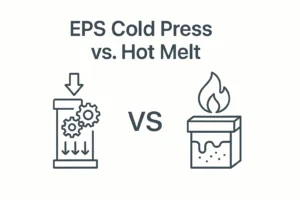EPS Cold Press vs. Hot Melt: Which Densifier is Right for Your Business?
Unsure whether an EPS cold press or hot melt densifier is right for your business? This guide from Rumtoo compares these two EPS foam recycling machine options, detailing their pros, cons, and ideal applications to help you choose the best solution for efficient and sustainable foam waste management.

